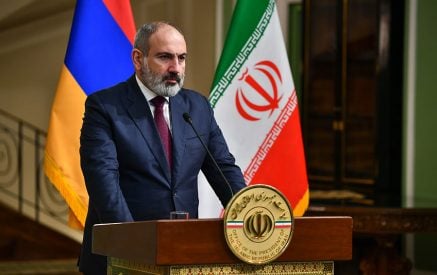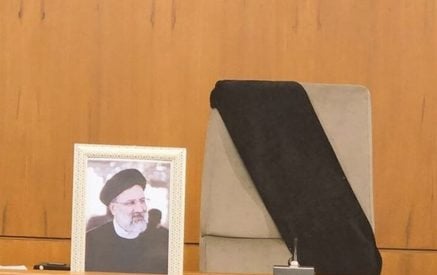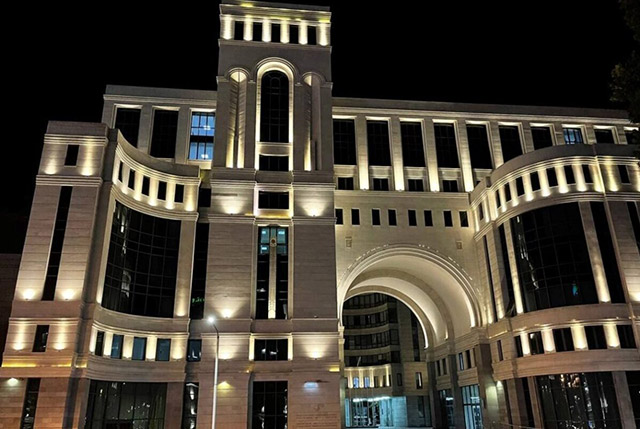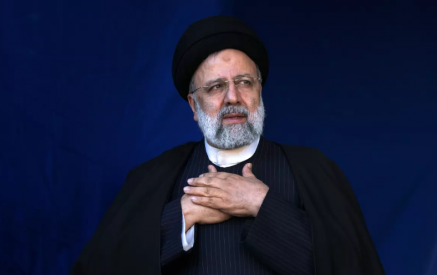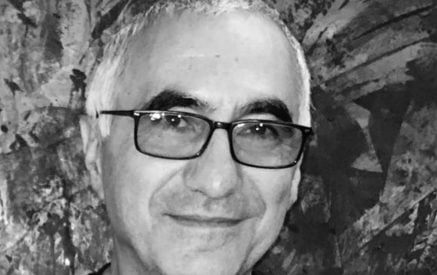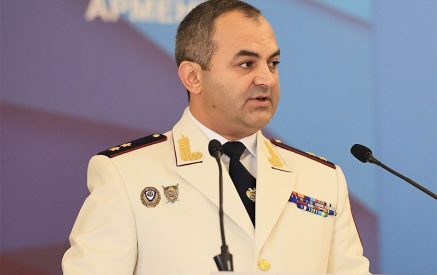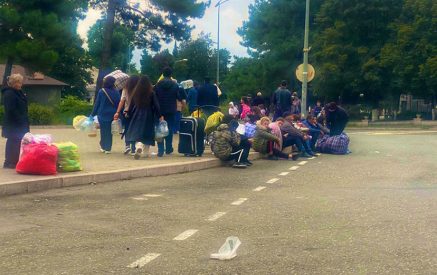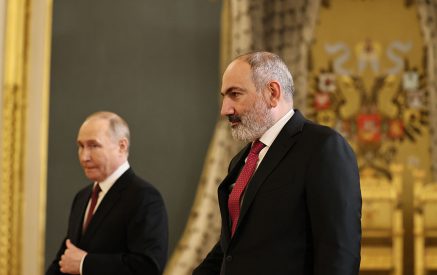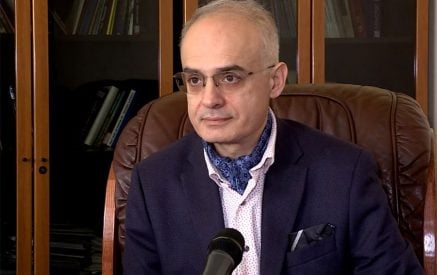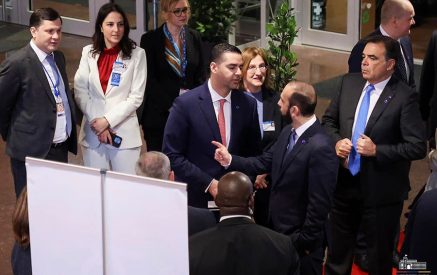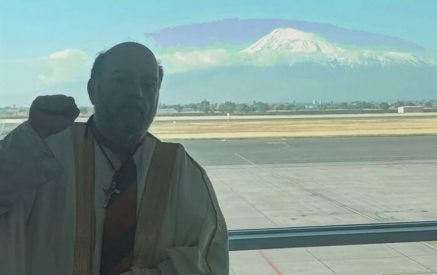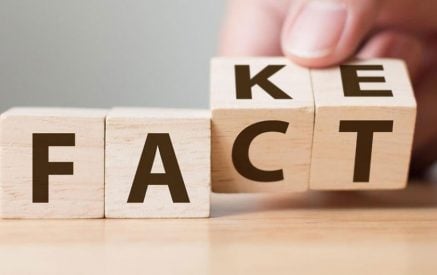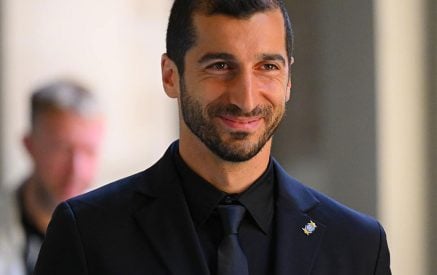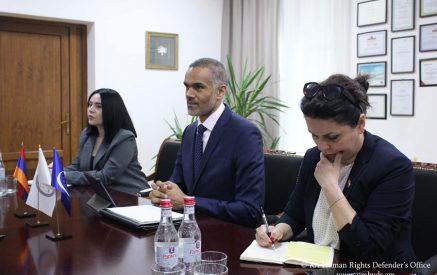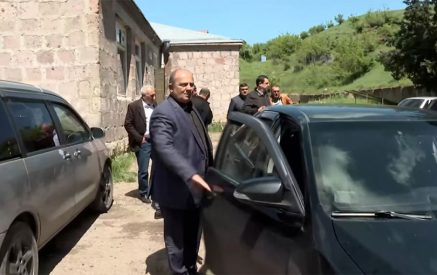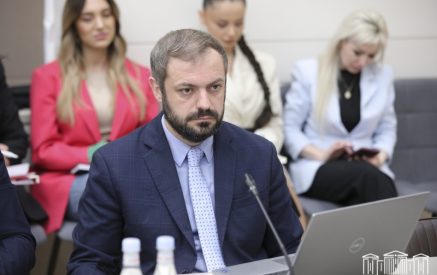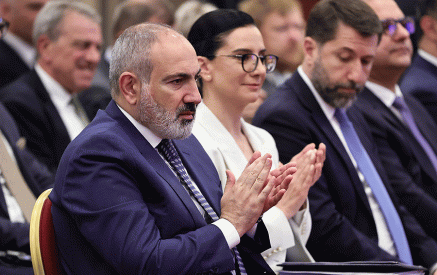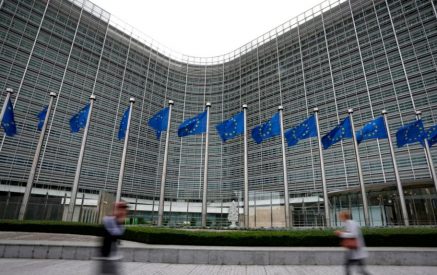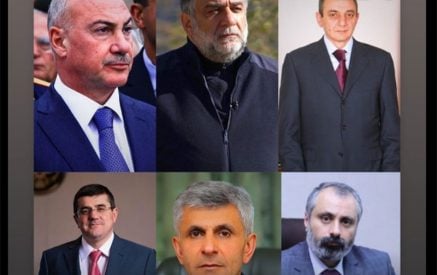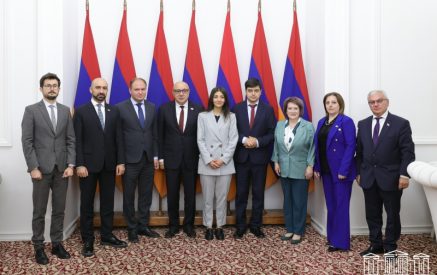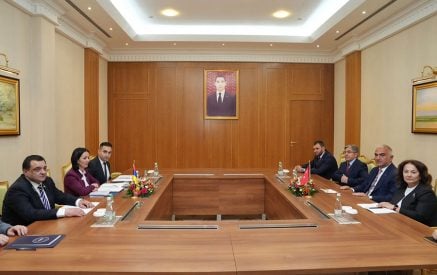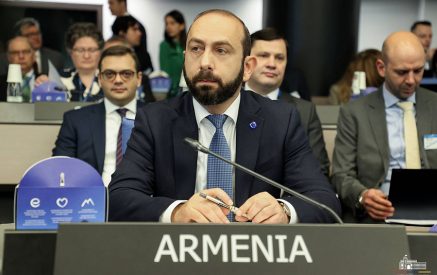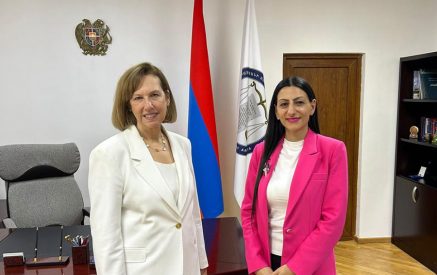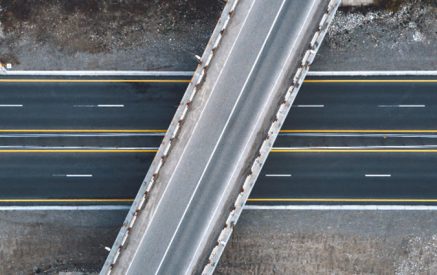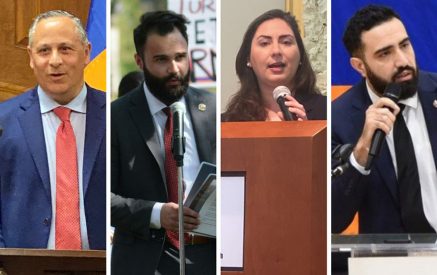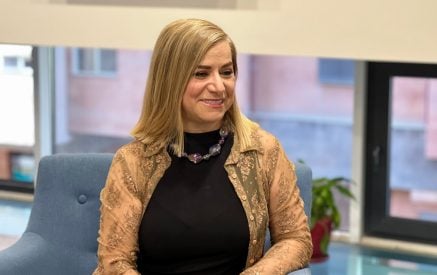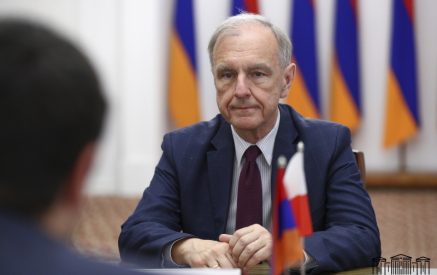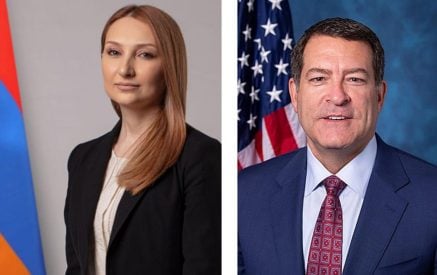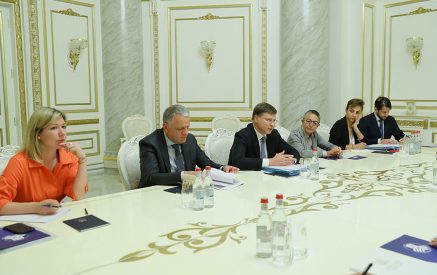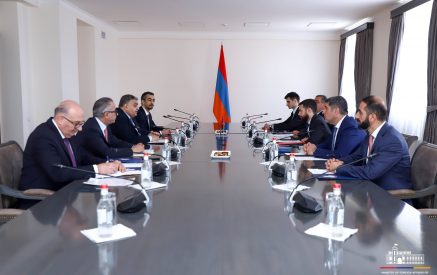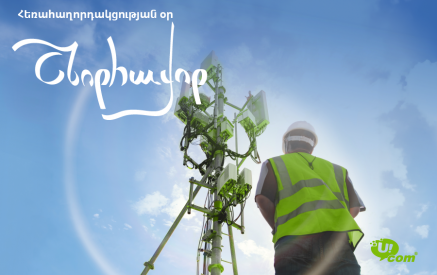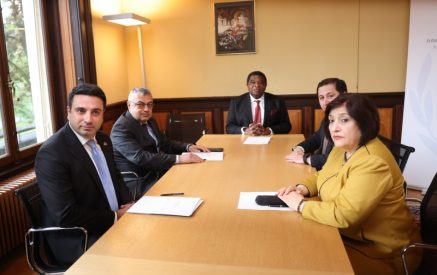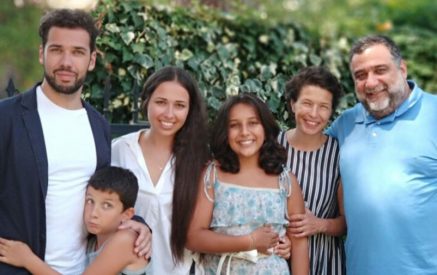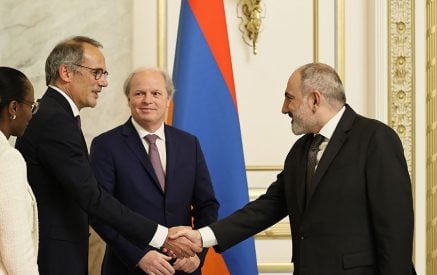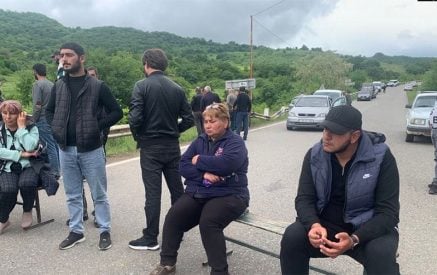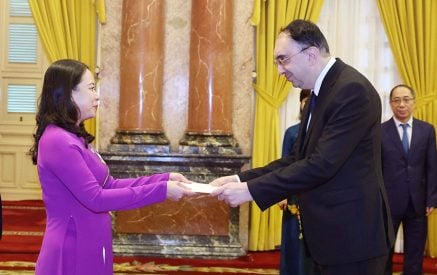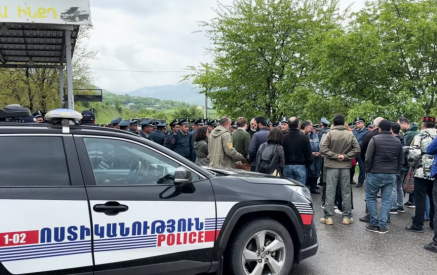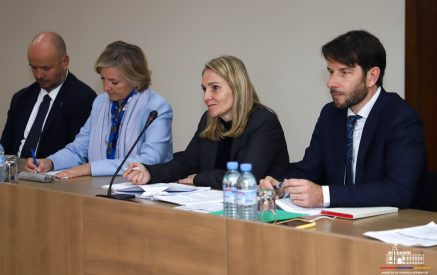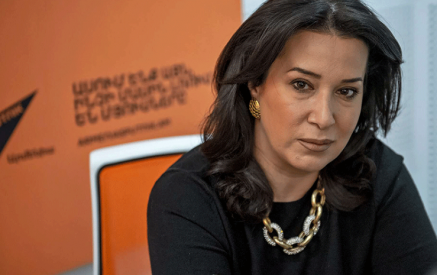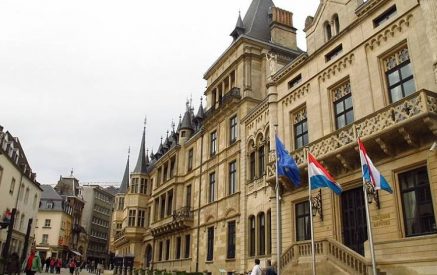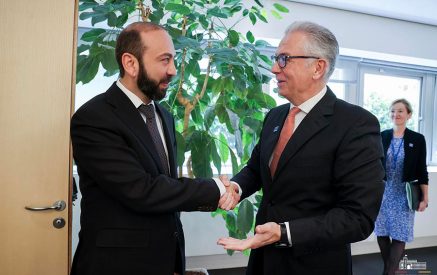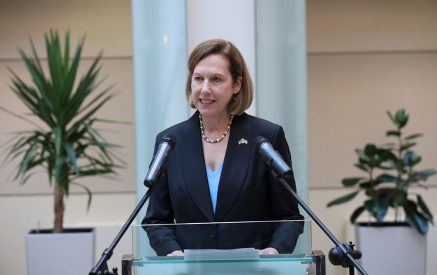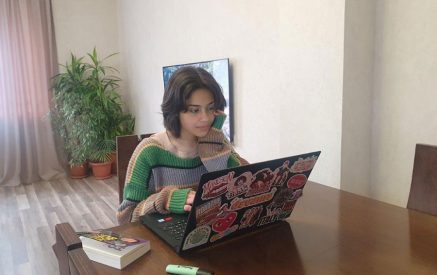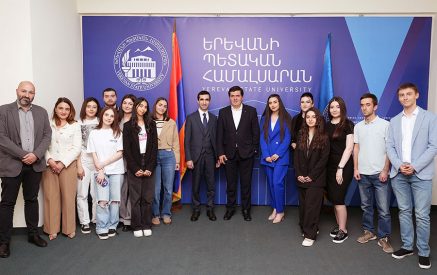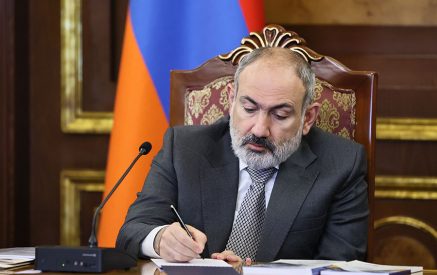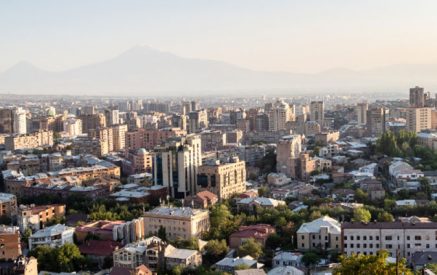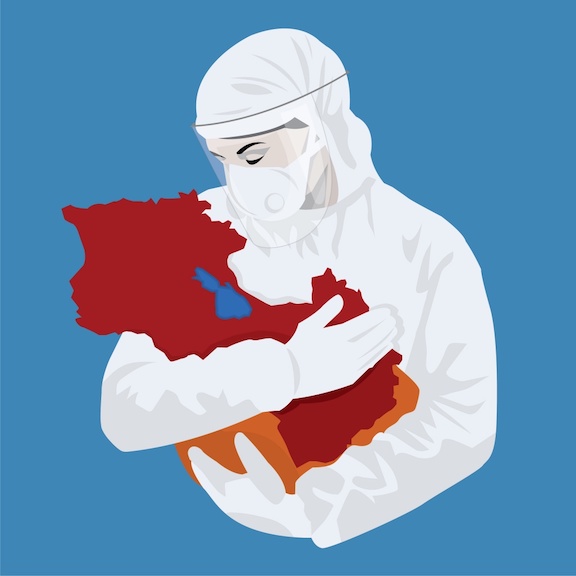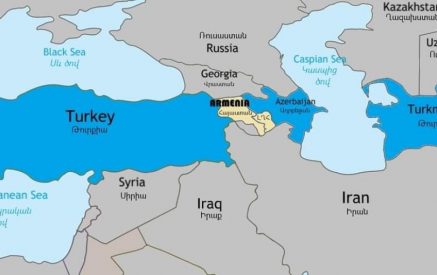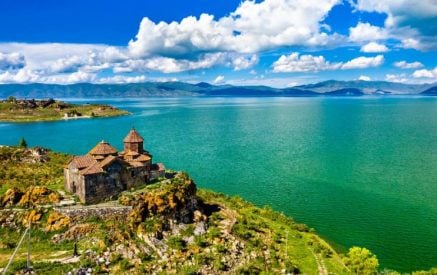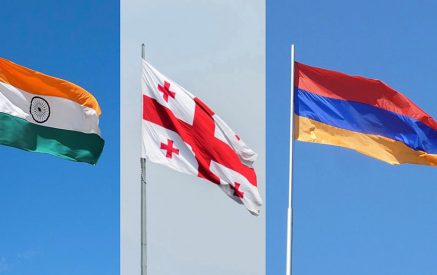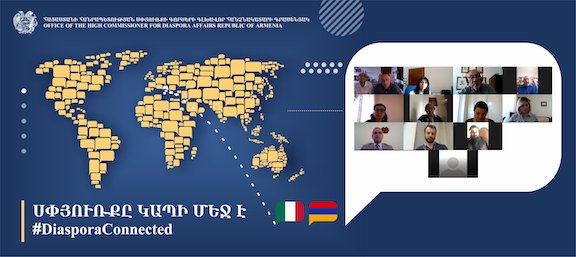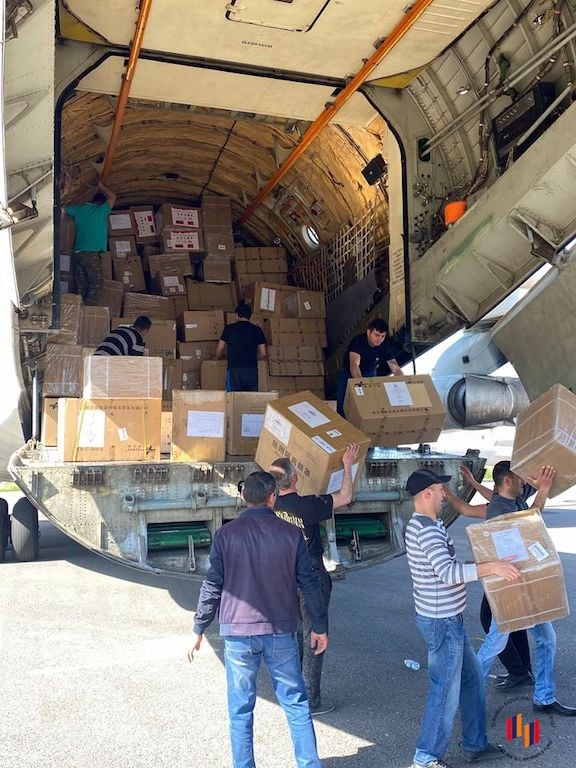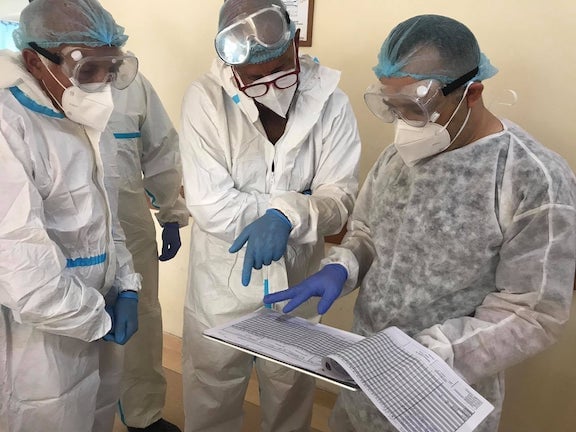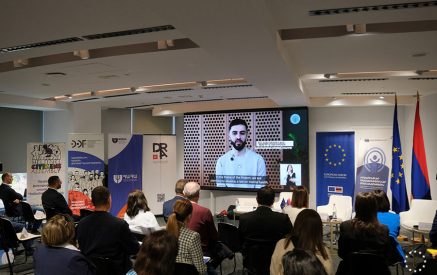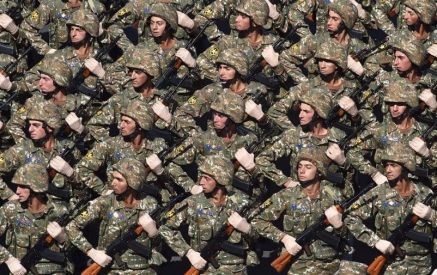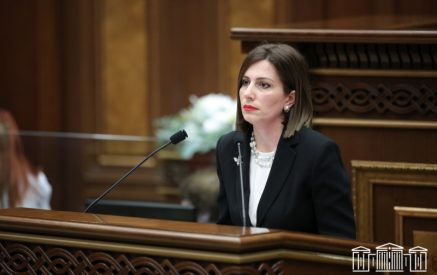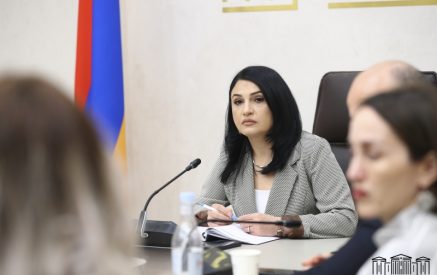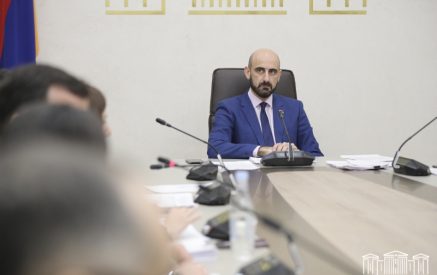Diaspora’s Initial Response in the Homeland and to the Developing Situation in Lebanon
BY RAFFI H. KENDIRJIAN
A few day ago, a close friend of mine in Yerevan informed me that he and his wife had come down with COVID-19. The news was terrible, but at least their condition, although serious, was not life threatening and that they were being treated at home. The COVID-19 situation in Armenia took a rapid turn for the worse in mid-May with the rise in the number of new cases and hospitalizations across the country. The health system was being tested to its limits.
Read also
Although the Government of Armenia’s (“GOA”) response to the Coronavirus Pandemic in Armenia over the past month has been markedly tougher, its initial response has been criticized by many as unsatisfactory and mismanaged. This has been the case in many other countries worldwide. In Armenia, both the government and citizens alike did not take the crisis seriously at the onset. Yerevan was placed on a Stay at Home order, “Mna Dane”, early on, however, enforcement, even by the acknowledgement of the government itself, was loose, with major violations by citizens and companies alike that did not comply with the calls for the shutdown, mainly for economic and cultural reasons. Let’s remember that it has only been 3 months since the global pandemic was declared, and Armenians, generally, have been skeptical about the existence of the virus, its spreading mechanism and the effectiveness of quarantines and Coronavirus shutdowns. As such, the reopening of certain segments of the economy in early May, could have spared the total collapse of the economic system and allowed the average citizen to earn their livelihood, however, the loosening of the shutdown conditions, has apparently come at the expense of a rapid rise in new cases, and unfortunately, the loss of life. All this may also lead to a steeper short-term decline in economic activity and a delay in the reopening of the country to much needed tourist revenues.
Today, however, the situation is totally different with the GOA responding with a full-fledged strategy to contain the spread of the virus. With multiple daily briefings at the highest levels, and a targeted public information campaign aimed at stressing the importance of social distancing, and the necessity of wearing masks, coupled with a much tougher enforcement policy of anti-Coronavirus measures, the Prime Minister, Nikol Pashinyan and the Health Minister, Arsen Torosyan are spearheading the government’s efforts to slow down the spread of the virus and flatten the curve. They are supported by a task-force consisting of multiple ministries and agencies that are working around the clock to secure resources and enforce the necessary measures.
Daily New Coronavirus Cases in Armenia as of June 18, 2020 Source: John Hopkins University of Medicine
Early on, the multilateral organizations, such as the IMF, World Bank, EU and UNDP have spurred to action by disbursing funds in support of social and economic programs that aim at stabilizing the social systems as well as prop the fiscal institutions as they navigate the draught in fiscal revenue causes by the crisis at hand which should help fill some of the gap of GDP loss due to the pandemic. The IMF, back in April, was projecting that GDP will contract by a nominal -4.5% in 2020 and rebound to only 1.8% annualized growth in 2021. Given that average nominal GDP growth in Armenia has averaged about 7% over the past 10-15 years, this means that the magnitude of GDP gap needed to be filled is enormous, and could reach close to 15-18% in the next couple of years. The IMF figures were published in the April IMF WEO report, which, at the time, did not account for the recent jump in COVID-19 cases in Armenia and the resulting economic repercussions, hence an even worse outlook than previously anticipated for the coming quarters and years. I would expect that the amount and pace of multilateral support, as well as support coming from diaspora organizations should accelerate in coming weeks and months to support the rising cost COVID-19 related healthcare related costs and the deteriorating socio-economic situation, to prevent the collapse of the most vulnerable segments of the society.
Among the outward facing agencies tackling the Coronavirus Pandemic, by utilizing their worldwide network of connections, is the Diaspora High Commissioner’s Office, under the leadership of Commissioner Zareh Sinanyan. The Office has mobilized its connection to secure financial resources, medical supplies as well as connect with a vast network of medical professionals from throughout the US, Europe and the Middle East in a series of almost daily teleconferences (or Zoom conferences), labeled “Diaspora Connected” whereby they would exchange their expertise with the local medical professionals and would share the latest techniques in the fight against the disease. Most recently, the Diaspora High Commissioner’s Office had arranged doctors from France to travel to Yerevan to join the fight against COVID-19 in person.
DiasporaConnected: Office of the High Commissioner for Diaspora Affairs ROA Source: Office of the High Commissioner for Diaspora Affairs, Facebook Page
Diaspora’s Response to COVID-19: March 15 – June 15
A few days following the WHO’s declaration of COVID-19 as a global pandemic on March 11, 2020, several major Armenian-American organizations began mobilizing and launching campaigns to raise funds to secure Personal Protective Equipment (“PPE”) for Armenia. Naturally, the Armenia Fund Inc. was leading the effort to raise funds and act as the facilitator of several US based medical and other non-profit organization wanting to ship equipment and make financial contributions to the Ministry of Health in Armenia. It’s worth mentioning that several other major Armenian organizations and churches in the United States have since launched and transferred sizable amounts of relief aid to Armenia to fight the virus and provide economic relief to struggling communities all over the country (as described below).
According to my estimates, the cumulative Coronavirus related relief contributions to Armenia, so far, since the announcement of the Pandemic in March, from community-based organizations in the US, including those collected through Armenia Fund, should amount to approximately $1 million.
The medical and economic relief efforts have been predominately coordinated by the Armenia Fund Inc. and its counterpart Hayastan All-Armenian Fund based in Yerevan, the Foundation, whose purpose is to ensure the proportional and sustainable development of Armenia, Artsakh as well as the communities in the diaspora, based on a common identity. Armenia Fund USA, headed by Maria Mehranian, President, and Greg Boyrazian, Executive Director, has played the dual role of a fundraising, and also that of a funnel agency, whereby other non-profits and medical groups, such as the ARS, Chevy Chase Medical Center, Glendale Adventist Health and other such groups would channel their assistance to Armenia through Armenia Fund USA. I reached out to Haykak Arshamyan, Executive Director of Hayastan All Armenian Fund headquartered in Yerevan earlier this week, to find out what the Fund was doing in terms of medical and economic relief response inside Armenia, Artsakh as well as other diaspora communities. Haykak explained in numbers and examples how equipment and supplies were being sourced from inside Armenia first, where available, and in the case of respirators and other specialized equipment and medication, from regional and international sources, sometimes with much difficulty given the global competition for these supplies. He explained that, despite the fact that there were very limit number of COVID-19 cases in Artsakh at this time, that he and his colleagues were monitoring the situation there and ready to respond immediately in the event the numbers rose.
Since launching their COVID-19 fundraising campaign in March 2020, a total of $462,000, averaging $150,000 per month, has been collected by Armenia Fund Inc. and All Armenian Fund’s collective efforts. Mr. Arshamyan believes that with the rapid rise in positive COVID-19 cases in the past few weeks in Armenia, a larger and faster fundraising response is warranted and additional financial resources will be needed to prepare for the rise in demand for hospitalization and medical supplies as well as staffing. All-Armenian Fund’s COVID-19 rapid response mechanism provides fast and direct funding to the Ministry of Health’s as it supplies the hospital system with equipment, medical supplies and staffing, hence the most efficient channel to reach patients suffering from COVID-19.
The Armenian General Benevolent Union, AGBU, considered the largest Armenian organization in terms of its financial resources and by nature of the size of its Endowment Fund, has been coordinating the COVID-19 relief efforts through its Armenia office. I spoke with Vasken Yacoubian, President of AGBU Armenia and Central Board Member, this week and he explained that their COVID-19 financial contributions since March amounted to around $150,000, which includes providing Hayastan All-Armenian Fund with $50,000 to over the cost of shipping PPE to Armenia, and Euro 30,000 from AGBU France to purchase 10,000 KN95 masks from the local market, $18,000 in rental subsidy support to 200 Syrian Armenian families, and around $40,000 to the Ministry of Education to support the public university system that had fallen on tough times as a result of the economic situation.
Among the religious organizations responding to the urgent calls to fight the Coronavirus Pandemic in Armenia is the Western Diocese of the Armenian Church. Per my conversation with Archbishop Hovnan Derderian, Primate, he explained that the Diocese was quick to respond to the call and has so far raised and transferred over $125,000 to help fight COVID-19 in Etchmiadzin and the surrounding regions in Armenia. The funds were transferred to the Mother See of Holy Etchmiadzin which in turn has utilized the funds for medical purposes, aiding the local hospitals, as well as reaching out to the economically vulnerable families impacted the hardest by the pandemic. Equal amounts of aid have been disbursed to individuals and families in the Western United States via Parishes and the Diocese directly. Fundraising activities at the Western Diocese are ongoing.
The Armenian Relief Society, through its chapters in the US and worldwide, in coordination with its office in Yerevan have been at work to help provide aid to Armenia and Artsakh. The ARS since early March has been sourcing PPE equipment from global sources in a bid to have them shipped to Yerevan and Artsakh and they have been successful in securing over 1 ton of medical supplies and Personal Protective Equipment (“PPE”) and over 100 professional handheld thermometers, at a time when the entire globe was competing over the same resources.
The ARF Western US has launched an initiative to help villagers in the border regions of Armenia, with the ARF Shant Student Association and the Armenian Youth Federation (AYF) partnering up for the “COVAID Armenia” fundraiser to provide humanitarian assistance aimed at providing socio-economic relief to the residents of these border towns and villages. Over $75,000 has been raised as of the time of the publication of this report and the campaign is ongoing.
Supporting the Lebanese-Armenian Community
In parallel to the contributions made to Armenia, several campaigns have been launched in support of other diaspora communities over the past few months, most notably to support to the Lebanese-Armenian community, which is facing a dual crisis of COVID-19 and of an unprecedented economic collapse, one which is creating an existential challenge for its constituents. According to my estimates, around $1 – 1.25 million in relief aid, sparked by the deterioration in living conditions in Lebanon has been transferred since October 2019. These transfers are beyond the usual budgetary transfers of the organization with operations in Lebanon.
As a background, on October 17, 2019, a revolution began in Lebanon in protest of the more than 30-years of corruption and economic mismanagement. Over the past 9 months, capital controls have been enforced in the banking system and the Lebanese Pound has seen a rapid devaluation against the US Dollar, dropping to record levels of up to 7,000 LBP per USD at one point this week. For over 28 years, the exchange rate was pegged to the USD at a fixed rate of 1,507.50. This sudden devaluation in the currency has caused widespread economic uncertainty and poverty. In contrast to the Syrian-Armenian community, which was decimated during the 8-year Syrian War as a result of a gruesome and destructive war, the Lebanese-Armenian community faces a grinding socio-economic crisis and high unemployment, both of which, would unfortunately, lead to waves of immigration over the next few years, similar to the ones that occurred during the Lebanese Civil War (1975-1990). This time, however, with the proximity and affordability of Armenia as a relocation option, and the difficulty to immigrate to other countries, many Lebanese-Armenians will choose to relocate to Yerevan as a safe haven once the threat of COVID-19 subsides there.
In response to the Lebanese crisis, the Armenian Relief Society (“ARS”) has been among organization that has rushed to the aid of the ailing community there, even before the emergence of the Coronavirus Pandemic. According to Nyree Derderian, ARS Central Executive Board Chair, the ARS raised and transferred $100,000 in the winter of 2019 and more recently launched its Feed Lebanon campaign and has so far raised and transferred $50,000. Its fundraising campaigns are ongoing and its soup kitchen program there has swelled in numbers and now serves over 1,200 meals, 4 times a week to the neediest Armenian families and elderly in Beirut. The ARS fundraising campaigns are ongoing.
The AGBU’s response to the Lebanese crisis, also began a few months ago with the rapid deterioration in the economic conditions in late 2019. According to Vasken Yacoubian, the AGBU has been transferring an average of $100,000 per over the past few months for socio-economic assistance to Lebanon. This assistance is in addition to the organization’s regular operating budget for Lebanon. Fundraising at AGBU for Lebanon is ongoing.
Among the major Armenian non-profit organizations making a difference in Armenia and the Middle East during these challenging times is the Armenian Missionary Association of America (AMAA). According to Zaven Khanjian, Executive Director, the AMAA was quick to respond to the GOA’s request for assistance with purchasing Personal Protective Equipment (PPE) with a transfer of $25,000, all this as they maintained their full budgetary support for a 500-strong staff throughout Armenia. Furthermore, over the past couple of months, the AMAA transferred $50,000 beyond their traditional budgetary support to help the Lebanese Armenian families in need in Beirut. Fundraising at AMAA for Lebanon and Armenia are ongoing.
A community-wide fundraiser, spearheaded by the ACF Western US and its affiliated organizations, raised $165,000 for the Lebanese-Armenian community. According to Avedik Izmirlian, Chairman of ACF, this will not be the last of such fundraisers and we may see national and international campaigns to reach out to aid the Lebanese-Armenian community over the years similar to its efforts to aid the Syrian Armenian community during the past 8 years.
According to Archbishop Moushegh Mardirossian, Prelate of the Western Prelacy, the Prelacy has over the past few months, directly, and through the contributions of its benefactors, transferred a substantial amount of relief aid to the Armenian Prelacy of Lebanon in support of the ailing Lebanese-Armenian community. The Prelacy continues to closely monitor the situation in Lebanon and follows the directives of His Holiness Aram I regarding the evolving needs of the community which is suffering immensely and is in desperate need of continued support. Activities at the Prelacy in support of the Lebanese Armenian community is ongoing.
Also, in the context of Lebanon, a campaign entitled, “Together for Anjar,” organized by a group of Anjartsi compatriots worldwide, has so far raised $125,000 to benefit the needs of the village of Anjar in the Bekaa Valley.
The Hayasdan All Armenian Fund’s response to the crisis in Lebanon over the past few months in support of the Armenian schools and newspapers and their willingness to do more should resources allow. He explained that the Fund had allocated $150,000 to the Armenian Schools in Lebanon towards the end of 2019 and will transfer $60,000 in the coming days or weeks to keep the schools in Lebanon sustainable. In addition to the schools, the Fund had supported the local newspapers in Beirut with a sum of $10,000.
The economic and financial situation in Lebanon is unfortunately expected to worsen as there are no immediate fixes to the deep-rooted and systemic economic issues there, and hence, the need for long-term relief and support for that community will be warranted for years to come.
Briefly, the Syrian-Armenian community also continues to suffer. During a recent conversation with Rev. Haroutioun Selimian, head of the Armenian Evangelical Community in Syria, he described the current economic situation in Aleppo as worse than the most horrible days of the war. The depreciation of the Syrian Pound to its lowest level yet has demoralized the community and created a sense of helplessness. He explained that, although they do not have cases of COVID-19 in Aleppo, the few cases that exist in Damascus are enough to keep everyone on alert.
Efforts to Aid the Local Community in the Western US
Closer to home, the American-Armenian community has supported many local and national initiatives and fundraising drives since the onset of the COVID-19 epidemic, most notable of these initiatives was the “America We Thank You 5 Million Meals” campaign which made waves throughout the United States. Several local organizations and chapters organized relief efforts to distribute food parcels to the most vulnerable segments of the community especially the elderly that could not get out to shop for necessities during the lock-down.
Since the start of the Pandemic in March, the ARF Western U.S. Central Committee quickly organized and through the Covid-19 Armenian Community Task Force, which included representatives of the Armenian Cultural Foundation, Armenian Relief Society, ANC-Western Region, AYF, Homenetmen, Western Prelacy, Board of Regents and Hamazkayin, provided informational interviews and official updates regarding the pandemic, including safety measures and information about government services available to individuals and small business owners. It’s Supplies Task Force raised funds to purchase food and supplies and delivered care packages to community members in need.
The AGBU, Western Diocese and many other non-profits organized fundraising drives and prepared care packages, including the making of handmade protecting face masks which were distributed free or charge and some cases used to fundraise.
It is worth mentioning that this report covers the efforts of the larger diaspora organizations and does not intend to ignore the organizational or individual initiatives, which could be many, and which are all highly praiseworthy and encouraged.
Situation in Armenia Today
What is the situation in Armenia today and what can we collectively do more to alleviate the healthcare burden and accelerate the economic recovery? The Coronavirus Pandemic in Armenia has exploded and spread like wildfire over the past few weeks. There are 500-600 new cases each day and many unfortunately are not surviving the fight. Hospitals resources are stretched, and medical staff is battling the situation in a heroic manner, with a friend in the industry describing the battle in the hospitals in Yerevan as one for the history books. He was not sure how much longer the staff could sustain this stress on the health system if the virus was not contained or slowed down soon. In short, the situation so far was described as a “controlled crisis”, which could easily spiral out-of-control and become devastating for the country.
I have found out that a major factor in the rise of COVID-19 in Armenia is behavioral, as the average citizen seems to have only recently realized that the virus is real, and despite this realization, many continue to ignore the authorities’ calls to wear masks and ignore social distancing guidelines that are essential to slowing down the spread of the virus. This is an extremely difficult but crucial issue in the fight against COVID-19, not only in Armenia but throughout the world, and especially in countries where adhering to health directives is taken lightly.
As such, it is imperative to view the fight against COVID-19 not only as a health crisis, but rather as a national security threat to Armenia, a country with limit financial resources, facing a severe recession, with a diaspora, which traditionally serves as its financial lifeline, itself economically wounded, and lastly, the incessant risk of a war in Artsakh and the internal political bickering escalating at the most unthinkable of times, all together creating a ticking time-bomb which could take the country into an unforeseen and dangerous direction. These coinciding, evolving and multifaceted triggers facing our communities around the world have created a challenge to the viability of their institutional and organizational structures in each of these communities, and the longer these triggers remain, the larger the socio-economic impairment to the diaspora institutions, and as a result, the more difficult and longer it would take for the diaspora to aid the Motherland in the future recovery phases. This calls for the acceleration of the formalization process for the Armenia-Diaspora relations, whereby the major organizations and the Armenian authorities collaborate at the highest level, to coordinate and synchronize their operations and relief efforts to maximize their effectiveness.
The Necessity of Developing Strategic Plans
Predicting the impact of Coronavirus on each and every community, its healthcare implications and on its economy in the short-term is almost impossible, and no government or relief organization had any prior experience or contingency plans to deal with a pandemic of such magnitude and of such global ramifications. Everything is still very new and everyone is still digging out of the rubble from the initial 3 months of quarantines, shutdowns and first waves of Coronavirus to hit the various countries. It is devastating, to say the least. The human toll by all accounts is horrific. Economically speaking, especially for countries with fragile financial systems and weak social safety nets, this will be a multi-year recovery process. Digging out will require a combination of multilateral, governmental, non-profit and private sector cooperation. COVID-19 being a global pandemic, has unfortunately paralyzed global economies, all at the same time. Some economies have been impacted more than others, but given the interconnectedness of these economies, the global recovery will perhaps take longer than during the Post-Great Recession recovery period of 2009-2012. This will impact the intensity and direction of fundraising campaigns, as many organizations and communities will shift inwards to maintain their own sustainability. Hence, widening the net of donors is essential through long-term and well-organized campaigns which stress on the urgency of the parallel crisis situations in Armenia and in the Middle East. Reaching the widest possible donor audiences across geographic locations is now possible through social media fundraising platforms, and the organizations experienced in this area should be able to benefit the most. Fundraisers, of course, will face the risk of donor fatigue from time to time as both the Armenia and Lebanon campaigns will overlap for at least the next 2-5 years depending on whether there is any political or economic breakthrough in Lebanon. This will require regrouping and refreshing these campaigns and allowing breathing space, however, that said, although not in this magnitude perhaps, the diaspora has in the past faced concurrent challenges and coped with them accordingly.
So far, based on the research carried out above, the diaspora organizations in my opinion, have responded swiftly and responsibly to the dual crisis in the Motherland and in Lebanon and have mobilized their resources effectively despite the shutdowns and the limitations obligated by the COVID-19 in their operating and fundraising locations. Moreover, these organizations have over the years developed close working relations with the GOA and its agencies and almost all of them have a presence in both Armenia and in Lebanon which expedites the implementation of their operations.
Going forward, diaspora organizations, especially the ones with large endowments and with access to affluent donor bases, will need to develop short, medium and longer-term strategies, whereby their financial plans into the future, may include coordination with other organizations sharing these common national objectives and also with the Armenian authorities which will be essential partners in the future implementation of such programs. Ideally, given the Coronavirus Pandemic, a reevaluation of national priorities should be developed into a master plan, such as a “Master Plan 2030”, or perhaps longer-dated plans, and an implementation strategy should be put in place to identify all possible global stakeholders who could ensure its success. At this moment, however, all organizations that have the organizational and financial capacity should work to accelerate assistance to Armenia, where possible, in its fight against COVID-19, given the gravity of the situation, and at a later stage, prepare for its post-COVID-19 recovery period.
Concurrently, and continuing with the efforts underway in benefit of the Lebanese-Armenian community, the Diaspora leadership, in cooperation with the authorities in Yerevan, should have a coherent and well-thought-out plan so as not repeat the unfortunate fate of the Syrian-Armenian community which suffered a tremendous loss. That said, at this time, the Syrian-Armenian cause should be readdressed in light of the focus and reallocation of resources to Lebanon. As for the Lebanese-Armenian community, there could be multiple scenarios in the near future, one of which could be a gradual and organized, while another could be a non-official and non-organized, migration to Armenia which would require large resources to assist with that transition. It is worth mentioning, that over the past few years, hundreds of Lebanese-Armenians, that have the financial means, have started to build bridges in Armenia by purchasing real estate and opening satellite offices and manufacturing facilities there. Of course, many have also obtained the Armenian citizenship and their children now attend universities in Armenia in greater numbers than before. On the positive side, the experience gained by the authorities in Armenia and of the non-profit community there over the past 8 years, as they assisted the 15,000-20,000 strong Syrian-Armenian community relocate to Armenia during the Syrian war, will greatly benefit the Lebanese-Armenian community if and when such a scenario were to materialize. Let’s hope that whatever the scenario, that it happens in an orderly manner whereby the wealth and resources of this valuable community is preserved to its fullest. Currently, an enormous amount of personal and community wealth is tied up in real estate in Lebanon, the liquidity and value of which is depressed and is one of the reasons why a long-term transition is more of the base-case scenario in my opinion. Regardless of the scenario and the timing, the financial burden, let alone the erosion of the cultural treasure of that community, is going to come at a very high cost and cannot be measured in financial terms alone. There will remain segments of the Armenian community which will, for many reasons, financial or otherwise, remain in Lebanon and will continue to require socio-economic support into the future.
Let’s be Part of the Solution
Finally, I wish to call on my friends and you, the readers of this article, especially those who haven’t had the opportunity to donate to any COVID-19 campaigns – Armenia or Lebanon-related as of yet, to choose a fundraising campaign close to your heart, perhaps from one of the organizations listed below that are making a difference in Armenia and Lebanon today. Consider contributing any amount which you feel comfortable under today’s circumstances.
Know that your action may save a life or many more! It may secure much needed PPE for a nurse or doctor putting their lives on the line! Even more, you would be contributing to strengthening the national security of the Armenian Nation which should be top of mind at all times, let alone in times such as the ones we are living in today!
Let us remind ourselves, that when our Nation is under attack, from enemies foreign or domestic, visible or not so visible, country and national interests must rise above all considerations. President John F. Kennedy during his famous address of January 1961, said, “My fellow Americans, ask not what your country can do for you, ask what you can do for your country.”
In this same spirit, I say, let’s stand shoulder to shoulder with our people in the Motherland as they fight this existential battle against this invisible and vicious enemy! Let’s stand by the Lebanese-Armenian community in their darkest hour, as they, once again, fight uncertainty and gasp for hope! In the midst of all this madness, I am hopeful and convinced, that we Armenians today, as a Nation, are at the peak of our financial success and organizational strength, and we will undoubtedly triumph over these crises and come out stronger than ever before! United, we will overcome these challenges!
Raffi H. Kendirjian, CRPC®, ChFC®, CFP®, is Senior Vice President and Wealth Management Advisor with Merrill Lynch Wealth Management and is the Co-Founder of the Armenian American Leadership Council at Bank of America. Raffi has served as Senior Economic Advisor to the Lebanese Treasury. He is the former Chairman of the Syrian Armenian Relief Fund and a current board member of YMCA Glendale. Raffi holds a Master’s in Money and Banking from the American University of Beirut “AUB” and a Bachelor’s in Business Administration from Haigazian University.

